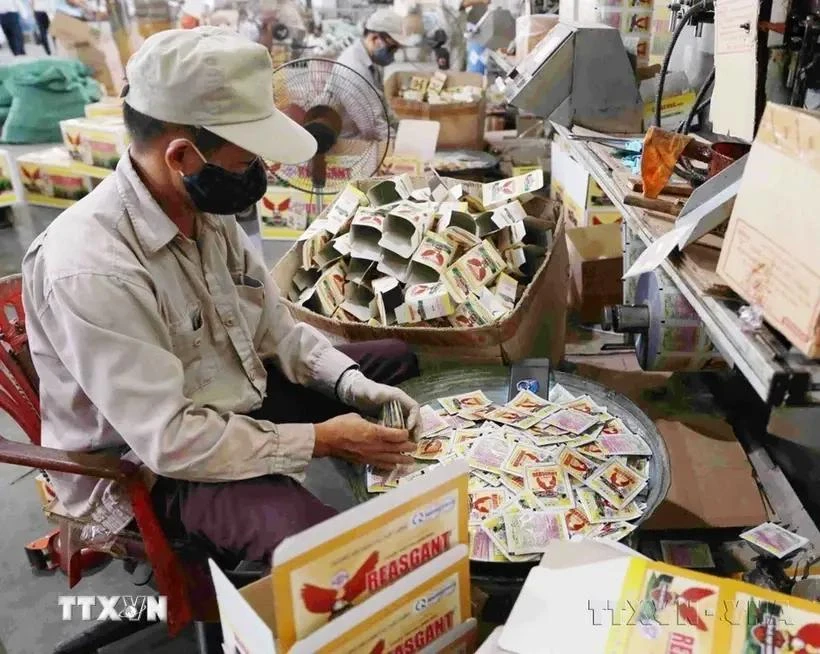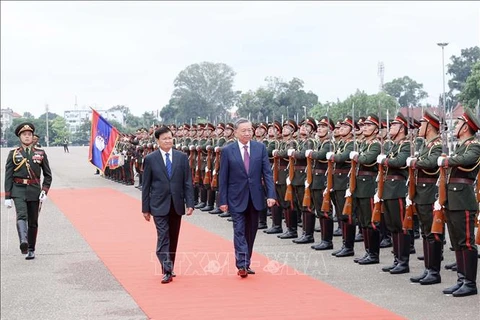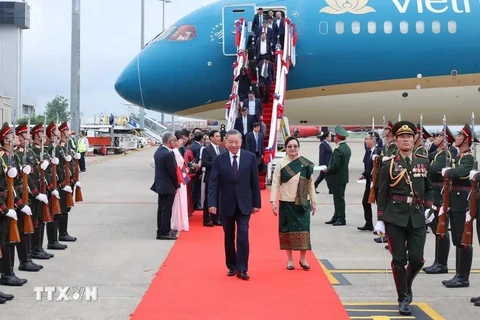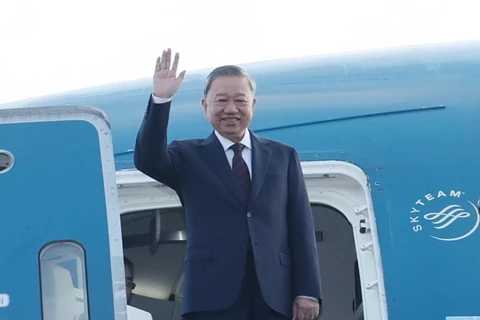
Hanoi (VNA) – The state visits to Laos and Cambodia by President To Lam from July 11-13 are expected to help promote solidarity and open up more trade cooperation opportunities between Vietnam and the two neighbouring countries.
Vietnam has 10 provinces sharing border with 10 provinces of Laos. Along the borderline, there are eight pairs of international, seven pairs of main, and 18 auxiliary border gates, which facilitate regional trade and help reduce transportation time and costs compared to other countries in Asia and globally. Additionally, bilateral trade has benefited much from the 0% tariff for almost all the goods of the two countries under the ASEAN Trade in Goods Agreement, the Vietnam-Laos Bilateral Trade Agreement, and the Vietnam-Laos Border Trade Agreement.
Furthermore, businesses can optimise Laos's connectivity with Thailand and China to increase exports to these markets in order to reduce transportation costs and enhance the competitiveness of Vietnamese goods there.
According to the Asia-Africa Market Department under the Ministry of Industry and Trade, two-way trade grew by over 10% annually in the 2016-2023 period. The two countries are striving to raise the annual trade turnover from over 1 billion USD currently to 2 billion USD.
Vietnam's main exports to Laos include petrol, oil, vehicles and spare parts, and steel products. Meanwhile, its imports include rubber, coal, timber, wood products, ores, and other minerals.
The trade turnover is estimated at 931.4 million USD in the first half of 2024, up 11.5% year-on-year. Of the total, Vietnam’s export revenue is about 284.2 million USD, and its import 647.2 million USD, up 5.5% and 14.4% year-on-year, respectively.
On April 8, in Vientiane, Vietnamese Minister of Industry and Trade Nguyen Hong Dien and Lao Minister of Industry and Commerce Malaithong Kommasith signed a new trade agreement between the two countries. At their talks, Dien affirmed that industry and trade is a critical pillar of the bilateral cooperation, affirming the implementation of the deal will help both countries enhance mutual support in combating counterfeit goods, especially in border areas, to protect consumers and law-abiding businesses.
To tap into trade cooperation potential, the two ministers agreed on measures to implement the agreement on the Vietnamese and Lao governments’ cooperation plan and the minutes of the 46th meeting of the countries’ Inter-Governmental Committee.
Regarding trade partnerships between Vietnam and Cambodia, the Asia-Africa Market Department assessed that over the part more than 10 years, bilateral trade has maintained impressive growth and served as a bright spot in the two countries’ relations.
Between January and May 2024, Vietnam exported steel products, apparel, petrol, and oil, among others, to Cambodia. Main imports were cashew nut, rubber, vegetables, and fruits.
In the first six months of the year, two-way trade was estimated at 5.4 billion USD, of which Vietnam’s exports stood at 2.5 billion USD, down 1.1%, and its imports 2.9 billion USD, up 38.4% from a year earlier.
To promote exports to Laos and Cambodia, the department recommended Vietnamese businesses thoroughly understand and familiarise themselves with the signed legal documents to bring into full play preferential treatment offered by the countries to each other, and avoid procedural complications during customs clearance.
In addition, businesses should make use of business matching programmes and trade promotion initiatives to find partners, and pay attention to branding and brand recognition.
The department also advised enterprises to develop distribution channels in Laos and Cambodia. This includes developing distribution via the traditional retail channel like markets as well as in supermarkets./.






















